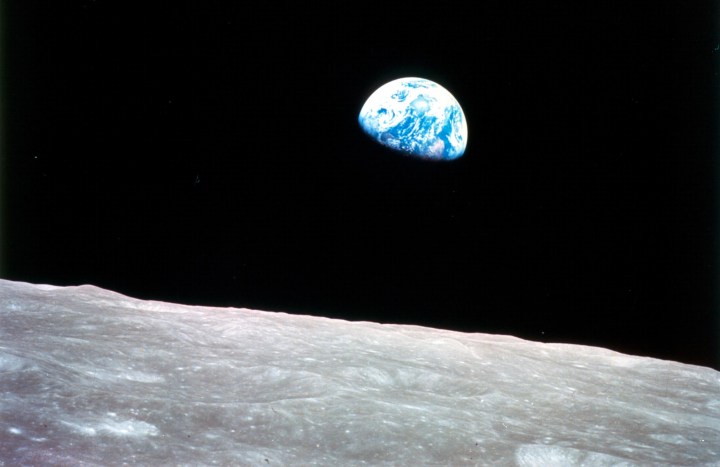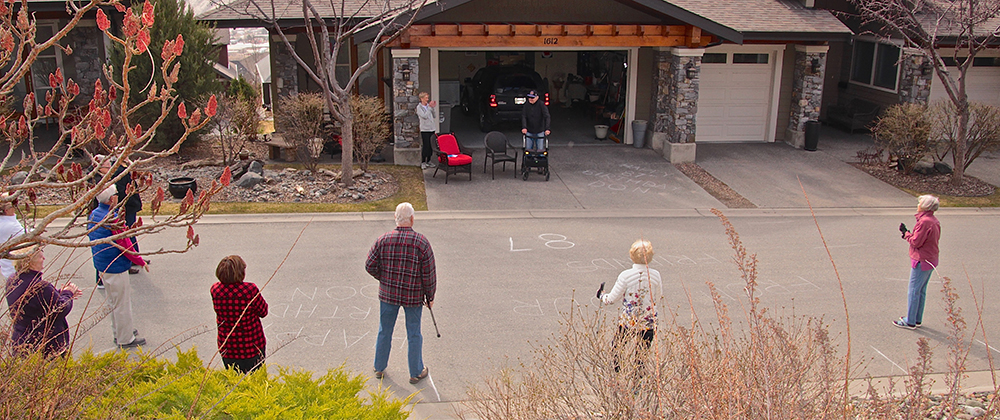Op-Ed
Seeing the world differently during Covid-19

Being pushed apart by lockdowns and physical distancing has shown people everywhere how connected we truly are – within our communities and to other nations – and why we need to remain so to survive.
Frank Borman is the world’s oldest living astronaut. He was commander of the first space mission to fly around the moon. In the 2018 documentary Earthrise, Borman recalled the defining moments of his historic flight. He said surprisingly little of the moon, described by his fellow crew member on Apollo 8, which passed within 100km of the lunar surface, as “kinda boring… so ugly and stark”.
But of the Earth, Borman marveled.
“I don’t think any of us paid any attention to the fact that we would be going all the way to the moon and be more interested in looking at the Earth… that beautiful little blue marble in the middle of all that darkness… everything that we hold dear.”
Borman had to travel 400,000km away from the Earth to grasp all its wonder and frailty. Today, a hidden virus is helping us do the same. Nature, our cities, communities. We are seeing our world as never before. Even if shades of perception differ starkly from suburbs to townships, rich to poor.
The last time so many people felt that the world had changed forever was the morning after 9/11. Some changes stuck after the attacks on New York and Washington nearly twenty years ago. The way we travel, our sense of public safety. Many would say that privacy died that day. Yet overall, societies were altered less than expected. Life reverted mostly to form. Geopolitics evolved with less and less relation to 9/11. And heightened fears of terrorism didn’t stop us getting on planes. Between 2004 and 2019, the number of passengers handled by the global airline industry more than doubled and, year-on-year, increased all but once.
The collapse of aviation worldwide in 2020 due to Covid-19 is one of countless phenomena yoked to the adjective of the new decade: “unprecedented”. We are told that air travel may never fully recover, that the pandemic is a trial-run for the coming climate catastrophe and has accelerated de-globalisation, turned countries inwards, destroyed economies. Dr Anthony Fauci, director of the US National Institute of Allergy and Infectious Diseases and the face of America’s Covid-19 response effort, advised that people should never shake hands again. Millennia of human tradition jettisoned overnight. Replaced by what?
It is too early to tell what has changed forever. But we do know what we can’t un-see. Less waste, a cleaner sky. Our glimpse of something better has become a long gaze. “History says, don’t hope”, wrote Irish Nobel Prize-winner, Seamus Heaney, “but then, once in a lifetime… believe that a further shore is reachable from here”.
Venice, absent the hordes, has transformed into a parable. Our better angels would keep its canal waters clear, its bridges and monuments less burdened, its streets quieter. But change can be fleeting.
How long the lockdowns and physical distancing, enforced in much of the world to contain the spread of Covid-19, will last is anyone’s guess. Against all that we miss, there is, aside from our health, one benefit: Seeing the familiar in a new way. Like our teachers. After two weeks of home-schooling (two boys), their powers seem nothing short of supernatural.
Perhaps the true power of this historical moment is in enabling us to see another reality, not our own, more clearly.
De-cluttering what we see swells our gratitude, helps us identify the parts of normal worth returning to. And what we’d wish away, once this ends. Booms, electric fences, walls that seem to grow higher each passing day of the lockdown.
Then in my mind’s eye, life outside South Africa’s suburbs, in an informal settlement, a shack, is crushing. The everyday unbearableness for so many comes into focus. None of their normal is acceptable. Allowing it to worsen should be unthinkable.
First-time visitors to South Africa are always astounded by its contrasts. Stay long enough, they become so hopelessly vast in your mind that you no longer truly see them.
Perhaps the true power of this historical moment is in enabling us to see another reality, not our own, more clearly. So clearly, in fact, that we are moved to correct it.
Many have observed that being pushed apart has shown us how interdependent we are. And that people need to connect. Through cheering and song, high up on balconies and across driveways, in online hangouts, this basic human need has found expression.
My parents still live in the small town in Canada where I grew up. On the day before Easter Sunday, my father turned 87. Before my parents awoke that morning, one of their friends wrote in thick chalk letters, “Happy 87th …” on the street outside their home. Neighbours came out and sang Happy Birthday. Soon they were joined by others who had not gotten the memo. They sang again. More joined. Eventually, about two dozen people were on the street. They joked and mingled – at a distance, along the white lines that their friend had also drawn, about two metres apart.

The New York Times writer, Roger Cohen, observed that there are no strangers during this pandemic. Our connections have strengthened, not just to one another but to “generations past and future”. The ones who experienced great trials in their own time help make us who we are.
That was clear in the photographs my mother sent me, the way upheaval bonds. People’s adaptation to distance amplified their resolve.
That’s what I saw. A community, not apart, but together. Its past evoked by the spaces between the living. The well-loved politician, the spitfire pilot fond of Hawaiian shirts, the businessman who gave my brothers and I our first jobs. He died last month, the others some years ago.
Not everyone is so lucky as my parents. Community takes time, a willingness to be known and know others, to help when not asked. Easier in some places than others.
A half-century ago, when Borman addressed the US Congress after the Apollo 8 mission, he drew on the words of the poet Archibald MacLeish to implore humanity:
“To see the Earth as it truly is … to see ourselves as riders on the Earth together, brothers on that bright loveliness in the eternal cold — brothers who know now that they are truly brothers.”
Near and far, the idea of community is being tested in ways that few ever contemplated. If ever there was a time to see our world differently, this is it. DM
Dr Terence McNamee is a consultant and writer based in Johannesburg. He is a Global Fellow of the Wilson Center (Washington DC) and co-Editor of The State of Peacebuilding in Africa (Palgrave Macmillan, 2020).
"Information pertaining to Covid-19, vaccines, how to control the spread of the virus and potential treatments is ever-changing. Under the South African Disaster Management Act Regulation 11(5)(c) it is prohibited to publish information through any medium with the intention to deceive people on government measures to address COVID-19. We are therefore disabling the comment section on this article in order to protect both the commenting member and ourselves from potential liability. Should you have additional information that you think we should know, please email [email protected]"




 Become an Insider
Become an Insider